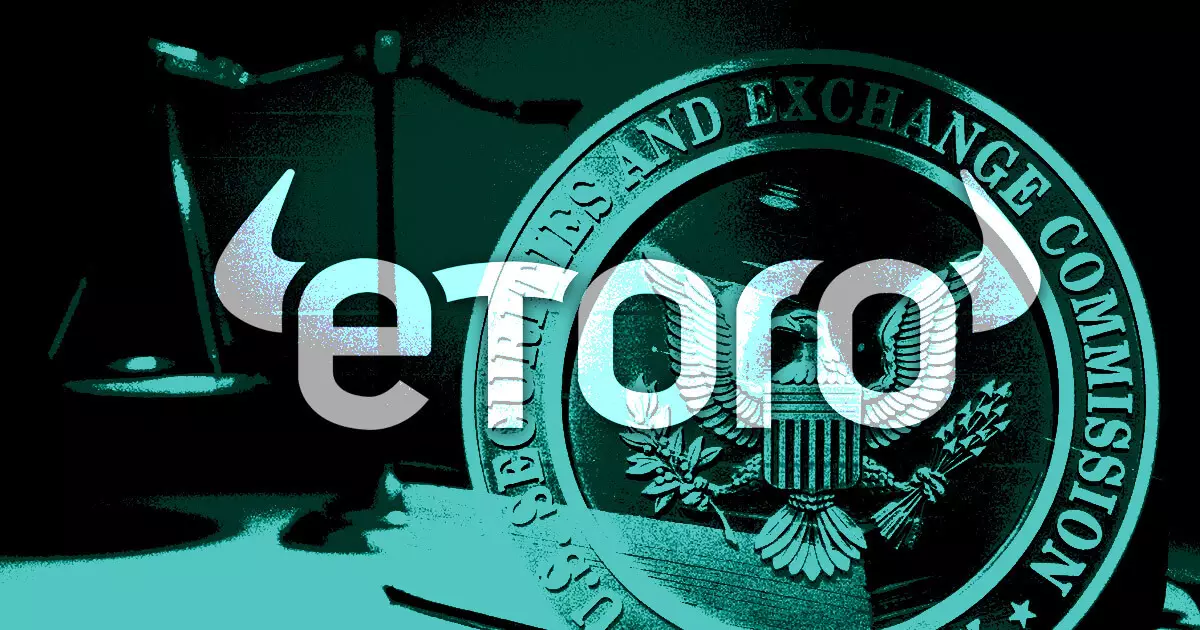The cryptocurrency landscape is continually evolving, and regulatory agencies are increasing their scrutiny of exchanges to ensure compliance with established laws. eToro, a well-known trading platform, has found itself at the center of regulatory action following a $1.5 million settlement with the U.S. Securities and Exchange Commission (SEC). The settlement arises from the SEC’s investigation into eToro’s practices, which indicated that since 2020, the platform allowed its U.S. customers to trade certain crypto assets categorized as securities without fulfilling necessary federal registration requirements. The consequences of this regulatory oversight are significant, not only for eToro but also for the wider cryptocurrency market, as they exemplify the ongoing tension between innovation in financial technology and adherence to regulatory frameworks.
As a result of the settlement, eToro will significantly scale back its crypto trading offerings, restricting access to a limited number of digital assets including Bitcoin, Bitcoin Cash, and Ethereum. This major recalibration means that a variety of previously available cryptocurrencies will be removed from the platform, forcing users to either liquidate their holdings or transfer supported cryptocurrencies to the eToro wallet by March 2025. The shift toward a reduced asset offering reflects the broader trend of regulatory caution within the cryptocurrency sector, compelling platforms to align their services with legal standards. For users, this could lead to increased frustration due to the potential loss of diversified trading opportunities.
The leadership at eToro has expressed a commitment to compliance and a determination to work collaboratively with regulatory agencies. CEO Yoni Assia highlighted the importance of adhering to regulatory requirements and articulated a hopeful vision for the future: “We now have a clear regulatory framework for crypto assets in the UK and Europe,” he remarked, expressing optimism that similar frameworks would soon be established in the U.S. His comments suggest a strategic pivot towards ensuring eToro’s long-term viability in a heavily regulated environment, while also indicating a desire to re-engage with a broader array of cryptocurrencies in due time.
This settlement is not an isolated incident. eToro’s predicament forms part of a larger crackdown by the SEC on various cryptocurrency exchanges, as well as firms like Binance, Kraken, and others facing similar scrutiny. In the midst of this regulatory climate, indicators suggest that even prominent entities such as Robinhood and the NFT marketplace OpenSea might also face legal challenges. The ramifications extend beyond eToro; they raise questions about how platforms will adapt to stringent requirements and what this means for investor protection in an increasingly complex market.
Ultimately, eToro’s decision to restrict its crypto offerings and engage in settlement discussions with the SEC demonstrates a proactive approach in a rapidly changing regulatory landscape. By focusing on compliance now, eToro not only aims to secure its operational future in the U.S. but also lays the groundwork for reintroducing additional crypto assets in alignment with future regulations. As the cryptocurrency market continues to mature, both platforms and investors will need to navigate this evolving environment carefully, aiming for innovation while adhering to the legal frameworks that govern financial transactions today.















